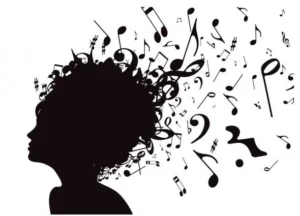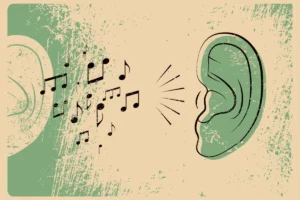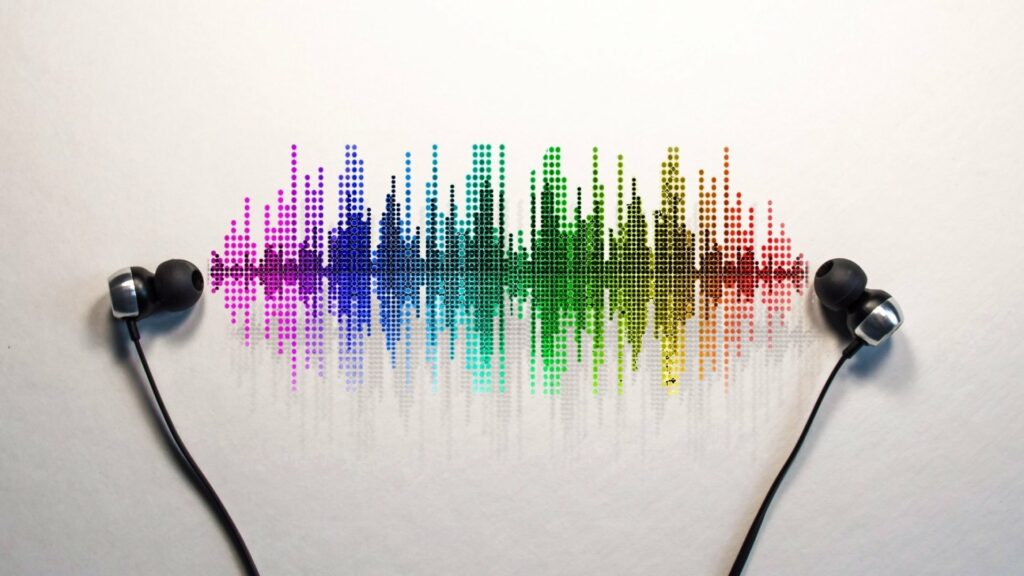Do you ever feel like you can’t escape the music? It seems to be everywhere, and sometimes it’s hard to get away from. You might not realize it, but music can have a huge impact on your mood and emotions. In this blog post, we will discuss how OCD and music are connected. We will also talk about the different ways that music can help people with OCD along with its ill effects on your condition. If you or someone you know struggles with OCD, please keep reading!
Contents
Defining OCD
OCD, a popular acronym for Obsessive-Compulsive Disorder, is classified as an anxiety disorder. OCD is characterized by “unwanted and repeated thoughts, feelings, images, sensations (obsessions), and behaviors that drive one to do something over and over (compulsions)” Individuals who suffer from OCD often have difficulty controlling their obsessions and compulsions, which can interfere with daily activities and cause significant distress.
The exact cause of OCD is unknown, but there are several risk factors that have been identified. These include genetics, brain structure and function, family history, and environmental stressors.
There are a variety of symptoms that can be associated with OCD. Some common obsessions include fear of contamination, excessive concern with order or symmetry, intrusive thoughts or images, and doubts about actions. Compulsions are often repetitive behaviors that the individual feels compelled to do in order to ease their anxiety. These can include excessive hand-washing, cleaning, checking, ordering, and counting.
It is important to remember that OCD is not simply a quirky personality trait or a bad habit. It is a real, serious mental disorder that can cause significant distress and impairment in one’s life. If you think you might have OCD, it is important to seek professional help.
The Link Between OCD And Music

Now that we have a basic understanding of OCD, let’s discuss how music can impact those who suffer from this disorder. It is important to note that everyone experiences and reacts to music differently. What may be soothing for one person may be triggering for another. With that said, let’s explore the positive and negative aspects of music on OCD.
Positive Aspects
There are a number of ways that music can help people with OCD.
For some, music can be a form of distraction from intrusive thoughts and compulsions. It can provide a much-needed respite from the anxiety and stress that come with this disorder.
In addition, music can help to increase focus and concentration. This can be beneficial for those who have difficulty completing tasks or concentrating on schoolwork or work tasks.
Music can also be used as a form of exposure therapy. This is a type of treatment that helps people to confront their fears in a safe and controlled environment. By listening to music that triggers their OCD, individuals can learn to manage their anxiety and reactions.
Moreover, music can be a form of self-care. It can help to boost one’s mood and provide a sense of comfort. This is important for people with OCD who may not have many other outlets to express themselves.
Negative Aspects
However, music can also worsen OCD symptoms in some cases.
- For example, loud or chaotic music can increase anxiety and make it difficult to concentrate. This can trigger compulsions or intrusive thoughts.
- In addition, music with lyrics that are disturbing or triggering can also worsen OCD symptoms. This is because the lyrics can provide “content for obsessions” and increase anxiety levels.
- Since people with OCD are more prone to developing obsession rather easily, it is important to be mindful of the type of music you are listening to. If a certain song or type of music is making your OCD symptoms worse, it is best to avoid it.
- Moreover, music and OCD can sometimes be a vicious cycle. For example, people with OCD may become obsessed with certain songs or artist because of their lyrics or the way they make them feel. This can lead to further distress and anxiety. Similarly, people with OCD may develop a fear of missing out (FOMO) if they do not listen to certain types of music.
- The consistent need and use of music to soothe oneself can also lead to further problems. This is because people with OCD may begin to rely on music as a crutch, which can prevent them from learning how to cope with their symptoms in other ways.
- Lastly, overindulging in music listening can consequent in a variety of physical problems such as hearing loss, tinnitus, and headaches.
These are all the possible explanations and links between OCD and music.
Is Music OCD A Real Disorder?
 There is a speculation and a huge debate surrounding the topic of music and OCD. A lot of people tend to think that if someone enjoys listening to music a lot, then they might have OCD. However, this is not always the case.
There is a speculation and a huge debate surrounding the topic of music and OCD. A lot of people tend to think that if someone enjoys listening to music a lot, then they might have OCD. However, this is not always the case.
Just because someone loves listening to music does not mean that they have OCD. In order for a person to be diagnosed with OCD, they must experience significant distress and interference in their daily life as a result of their obsessions and/or compulsions.
There are also a variety of subtypes of OCD. It is an estimate that there are around 20 or more such types. However, music OCD is not one of them. However, people with OCD may have musical obsessions or compulsions to engage in certain behaviors related to music.
For example, a person with OCD may be fixated on the order in which they play their songs. They may have to listen to each song a certain number of times or in a particular order. Similarly, a person with OCD may become anxious if they cannot hear a song perfectly or if there are any distractions while they are listening to music.
Now that we are clear about whether or not music OCD is a thing, we will understand some terms that may overlap or seem confusing.
- Stuck Song Syndrome (SSS): This is a type of obsession that can occur in people with OCD. It is when a person becomes “stuck” on a certain song or melody and cannot get it out of their head. This can lead to a great deal of anxiety and distress. This is also known as earworms.
- Last Song Syndrome (LSS): This is similar to SSS, but it occurs when a person becomes fixated on the last song they heard. This means that the person will often replay the song in their head on a loop, and it can be very difficult to focus on anything else. This can be extremely difficult to manage.
- Intrusive musical imagery (IMI): This is when a person experiences intrusive thoughts in the form of music. This can be a song that gets stuck in your head, but it can also be a completely new melody that you can’t get out of your head. This can be extremely distressing and can make it difficult to concentrate on daily life activities.
It is important to be aware of these terms if you or someone you know is struggling with OCD. If you think that you may have OCD, it is important to seek professional help.
Tips To Make The Best Out Of Music In OCD

Now that we know the relation between the two, we will now look at some ways to make the best out of this situation.
The first step is to understand that it’s okay to like music. Just because you have OCD, it doesn’t mean that you have to give up the things you love. However, it is important to be aware of how much time you’re spending on listening to music and whether or not it’s interfering with your daily life. If you find that you’re struggling to focus on other tasks or that you’re feeling more anxious when you’re not listening to music, it might be a good idea to cut back on the amount of time you’re spending on it.
There are also a few things you can do to make the most out of your music listening experience.
- First, try to find music that is calming and relaxing. This can help you to focus on the music and not on your OCD thoughts.
- Second, make sure to have a good pair of headphones so that you can block out any external distractions. This will help you to focus on the music and prevent any intrusive thoughts from coming into your head.
- Finally, try to find a balance between listening to music and engaging in other activities. This can help to prevent you from becoming too fixated on music and can also help to reduce your anxiety levels.
Music can be a great way to relax and unwind, but it’s important to be aware of the potential risks associated with it. If you think you might be struggling with OCD, please seek professional help. Seeing a mental health professional gives you a space to talk about your experiences and can help you to develop healthy coping mechanisms. You don’t have to struggle with OCD alone. Help is available.
Conclusion
In conclusion of the above, OCD and music can be a great combination if used in the right way. It can help one to focus and relax while also providing a form of entertainment. However, it is important to be aware of the potential risks that may associate with it and to seek professional help if need arises.
We hope this article was helpful in understanding the relationship between OCD and music. If you or someone you know is struggling with OCD and wants to seek the best available help at affordable rates, do consider Therapy Mantra. We have a team of experienced mental health professionals who can help you learn how to manage your OCD symptoms and lead a healthy life. Contact us today to book a session or download our free OCD treatment app on Android or iOS for more information.


